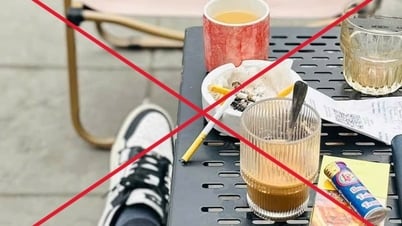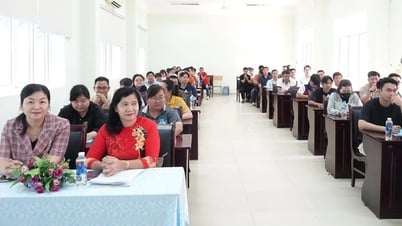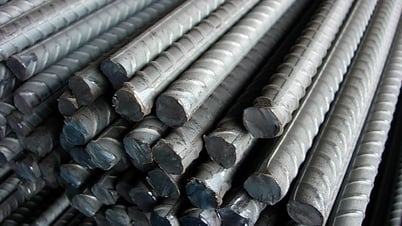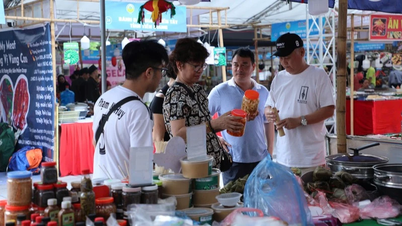From the perspective of a psychology student at Temple University, Philadelphia, USA, Ngo Bich Hang (born in 1985) had a conversation with a reporter from the Vietnam Law Newspaper about this situation from a psychological perspective. According to Hang, during her 8-month internship at a support center for victims of domestic violence in the US, Hang had the opportunity to listen to and accompany many survivors of violence. Based on real-life experiences and research in the fields of sociology, psychology and neuroscience, Hang provides a multi-dimensional and in-depth perspective on why many victims continue to stay in abusive relationships - even when they have the opportunity to leave.
Most people still explain the victim’s resignation by saying: “She didn’t leave the relationship because she was weak, lacked awareness, was financially dependent on the abuser, or didn’t love and respect herself enough to leave…”. Do you think that’s true from a psychological perspective?
- I believe these may be contributing factors, but they are not the whole story. A very real and less discussed reason why victims stay is because leaving an abusive relationship can be extremely dangerous, even life-threatening. The risks are not only to the victim, but also to their loved ones.
In situations where the victim flees but their family remains in the same area, the abuser may retaliate by harming the victim’s loved ones to terrorize them. Parents, siblings, friends, and even co-workers can become “hostages” in the abuser’s emotional warfare.
In terms of public opinion, comments that the victim is weak and doesn't love herself so she stays are all forms of victim blaming, even though they may seem reasonable at first glance.
It is worth noting that the community is the one who condemns the people who abuse women and the women who are abused, when they endure it, but there are not many immediate solutions to support the victims when they are in dire need. Is that the reason why the victims do not leave but have to endure, in your opinion?
- A painful truth for those who work to protect victims of domestic violence is having to witness victims continue to stay and endure brutal violence from their abusers, while doing almost nothing to help them. As long as the victims stay, what we can do for them is very little, because the threat is still present right next to them and the violence can happen at any time.
In such a situation, it is easy for anyone to wonder: Why don’t victims leave, even in situations where, at first glance, they seem perfectly capable of leaving? However, the answer to that question is much more complex than we might think. In addition to the obvious reasons such as having to care for young children, being financially strapped, not having a job, or fearing retaliation, there are deeper psychological and neurological reasons.
Ngo Bich Hang. (Photo: NVCC) |
Speaking of “other deep psychological and neurological causes”, do you think the suffering of the abused person is “traumatized and subjugated”?
- The abuser’s refusal to leave is “traumatization” – a state of psychological entrapment in a threatening and violent environment. This is when a person is trapped in a severely abusive situation, but instead of running away, they form a distorted attachment to their abuser. This is a survival mechanism, causing the victim to cling to the relationship – even when they know they need to leave.
Neurologically, this phenomenon is explained by a defense response to survive in situations where resistance or escape is impossible. According to research by scientists on primates, the submission response is a common evolutionary mechanism that helps individuals survive in prolonged trapped situations, when fighting or running away is not possible.
Physical abuse, especially forms such as strangulation and traumatic brain injury, causes serious consequences on brain structure and function.
According to a recent study by scientists, magnetic resonance imaging of the brain showed that the brain regions responsible for thinking and emotional regulation in victims were significantly atrophied in the entire cerebral hemisphere and limbic system. The researchers found that victims of traumatic brain injury, especially those who had been strangled non-fatally, had significantly lower scores on memory and executive function. This result is consistent with many previous studies showing a clear link between physical violence and cognitive impairment.
As a result, cognitive and emotional processing impairments can leave victims unable to plan their own escape, or susceptible to paralysis when triggered by unexpected events. The “fight or flight” response then takes over, leaving them unable to think clearly.
Another important psychological factor is low self-esteem. Low self-esteem is both a result of being humiliated and put down, and it can also lead to victims believing they are unworthy of love or protection. Victims are often subjected to emotional manipulation—a tactic used by abusers to make them doubt themselves, feel worthless, and believe they “deserve to be punished.” This is one of the biggest barriers to escape. There is also a cycle of re-abuse. According to the National Domestic Violence Hotline (2025), the average victim leaves and returns to their abuser seven times before leaving for good. This number shows the complexity and multi-faceted obstacles of the journey to escape abuse.
Faced with such alarming situations, what solutions do we need to come up with to protect and speak up for the vulnerable in society?
- It's about patience and empowerment. But that doesn't mean leaving is impossible. At the Women's Center of Montgomery County, USA (WCMC) - where I interned - we understand that each survivor has a unique situation and very real barriers that prevent them from leaving right away. So patience is at the core of our work.
We don’t force them to leave. Instead, we listen, provide emotional support through a hotline, legal assistance, help finding housing, finding employment, providing cash assistance, and creating safety plans to ensure they are protected even while still living with their abuser. Throughout this process, we empower and support them, until they become more self-sufficient and ready.
Only when they feel they have regained control of their lives can they leave their abuser for good and begin a new journey – one of life, safety and dignity.
Thank you Bich Hang and wish you success in your career of preventing domestic violence and supporting vulnerable victims.
According to Article 35 of the Law on Prevention and Control of Domestic Violence 2022, effective from July 1, 2023, facilities supporting victims of domestic violence provide care, counseling, temporary shelter, and support for essential needs for victims of domestic violence and children that victims of domestic violence are responsible for caring for and raising;educate and support the conversion of domestic violence behavior. Facilities supporting the prevention and control of domestic violence include: Trusted addresses; Medical examination and treatment facilities; Social assistance facilities; State legal aid centers, organizations participating in legal aid; Other facilities participating in supporting the prevention and control of domestic violence; Facilities providing services to support the prevention and control of domestic violence.
Domestic violence victim support facilities carry out activities to support domestic violence victims such as: health care; medical care; legal advice, psychological advice; providing temporary shelter in cases where domestic violence victims have no other place to live, to avoid further acts of violence by the perpetrator of domestic violence; supporting some essential needs for domestic violence victims in cases where domestic violence victims cannot take care of themselves or do not have support from relatives, friends, etc.
Tuan Ngoc (performed)
Source: https://baophapluat.vn/phu-nu-dung-am-tham-tu-chua-lanh-bao-hanh-post548687.html



![[Photo] Prime Minister Pham Minh Chinh chairs the Government's special meeting on law-making in May](https://vphoto.vietnam.vn/thumb/1200x675/vietnam/resource/IMAGE/2025/5/22/1c880aae96fd4e0894abc47a46fe19ba)


![[Photo] Prime Minister Pham Minh Chinh attends the groundbreaking ceremony of Trump International Hung Yen Project](https://vphoto.vietnam.vn/thumb/1200x675/vietnam/resource/IMAGE/2025/5/21/ca84b87a74da4cddb2992a86966284cf)






















































































Comment (0)